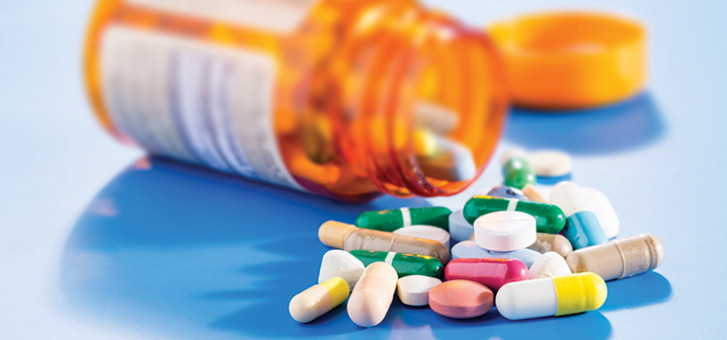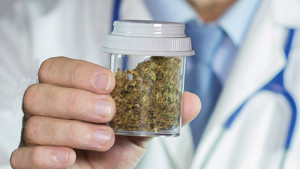Read "The great drug debate (Part 1): Why Australia needs drug law reform"
More than 100 years ago, international consensus that certain drugs presented too many public health and social harms led to the 1912 Hague Convention, which made opium and cocaine illegal for non-medical use. Cannabis was added in 1925 with the Egyptian delegate, Mohamed El Guindy declaring its use could lead to madness and that its intoxication “takes a violent form in persons of violent character.”
The concerns leading to the prohibition of these drugs 100 years ago still prevail today. In the last (2016) National Drug Strategy Household Survey, 99 per cent of the 25,000 Australians indicated they did not approve of the regular use of heroin. Their views were similar in regards to speed and ice (99 per cent), cocaine (97 per cent), and ecstasy (97 per cent). And 85.5 per cent of those surveyed said they did not approve of cannabis use.1 Australians clearly want less drugs, not more drugs. In a nation that has previously had the highest levels of illicit drug use in the OECD, with up to 46 per cent having previously tried illegal drugs2, this dim view of drugs cannot be discounted on grounds of naiveté or moral prudery.
Despite this firm social prejudice against these substances, pressure to legalise all drugs has only increased worldwide, being funded by some of the world’s richest men. In October 2017, billionaire hedge-fund trader George Soros alone gave a staggering $18 billion to his Open Society Foundation for activists urging drug legalisation, same-sex marriage, LGBT issues, euthanasia and open borders.
The millions Soros sunk into Barack Obama’s election campaign in 20083,4, paid huge dividends when Obama abandoned the United States’ obligations to international drug control agreements. In 2013 Obama ceased federal prosecution of cannabis use in two states that had voted to legalise recreational cannabis in 2012.5 Quite apart from the novel spectacle of PC/neo-Marxist-aligned drug legalisation proponents now applauding the naked capitalism of burgeoning marijuana corporations exploiting just another addiction (which suggests a deeper unifying motivation), we now have the opportunity to assess Obama’s international dereliction of duty.
Colorado and Washington were the first states to legalise recreational use, having previously legalised medical cannabis. Within a year cannabis use by those aged 12–17 had risen 20 per cent (against decreases of 4 per cent in all other states), rising to 17 per cent for college-aged young people against 2 per cent for other states. Cannabis is still illegal for all under age 21. Adult use rose 63% against 21% nationally.6 If this was tobacco, action would have been demanded. Colorado and Washington’s cannabis use for the month prior to the survey charts the highest for all states, followed by states which have legalised medical cannabis, with non-medical cannabis states charting the lowest.7 Legalisation yields more drugs, not less drugs.8
Increased use multiplies health and social harms
When comparing three year averages before and after legalisation in Colorado, cannabis-related traffic deaths rose 48 per cent. Hospitalisations related to cannabis went from 6,715 in 2012 to 11,439 in 2014.9 Notably, black market criminals found new sanctuary in Colorado, attracted by lower risks of enforcement. Governor Hickenlooper last year introduced House Bill 1221 to address the 380 per cent rise in arrests for black market growers between 2014 and 2016.10,11
Colorado voters in 2012 were swayed by a pro-legalisation advertising budget 25 times higher12 than the anti-cannabis campaign. These ads argued that legalisation would remove all criminals from cannabis supply and that tax on supply would more than pay its way regarding health and social costs, providing a rich, new income stream for the state. While Colorado took in $116m in taxes in 2015, the deficits will certainly be higher, and not just from fighting black market criminals.
What about Australia?
The detailed Lapsley & Collins analysis of the costs of drug use here in Australia13 is possibly the best available internationally. They found that in 2004/5, government revenues from alcohol and tobacco had a net positive financial effect for government, once consumer-borne costs, such as health insurance premiums, are deducted. Yet this analysis totally ignored individual drug users’ impacts on their children, spouses, parents and siblings, which has direct and cascading causal effects on health and welfare costs. Second, science continually discovers new harms caused by drug use. The 43,000 academic studies on cannabis detail its many physical harms (such as violence14or psychosis15—madness as the aforementioned El Guindy put it, back in 1925) but the latest studies at the cellular level show cannabinoids disrupting ATP production, a causal mechanism for the well-known multi-organ damage it produces.16,17 With no medical capture mechanisms for these causally related diseases and the impact on family members of drug users, the rosy estimates of the Lapsley/Collins analysis are seriously deficient.
In Australia, the legalisation lobby keeps crying, “the War on Drugs has failed.” But Australia has never had a War on Drugs—for the last 33 years Australian drug policy has done everything to facilitate drug use—we’ve handed out free needles to drug users, given them injecting rooms and maintained users on methadone for up to 40 years. If there has been a failure, it must be on these kinds of “harm reduction” drug policies,18 which by definition do not aim to decrease drug use.19
Because policing has failed to eradicate drugs, we’re told we should abandon the effort. Police “blitzes” in the “war” on speeding have likewise failed, as have “wars” on rape and stealing, but we won’t be legalising those behaviours, will we? We were also told that when criminals supply the drugs, more people die because of the uncertain purity of the heroin, which is sometimes mixed with contaminants such as cement dust.20 These arguments turned out to be totally false21 and we’re now seeing that deaths from misuse of legally prescribed, properly manufactured opiates will likely soon outstrip those from criminally supplied heroin in the 90s. Many of these deaths occur because drug users themselves create deadly cocktails, mixing opiates with alcohol and benzodiazepines—it has nothing to do with criminals.22
There is a proven path to getting rid of criminals. Sweden went from being the most drug-abusing country in Europe to the least in 20 years by requiring mandatory rehabilitation of users.23 Once they’re clean, they don’t need the criminals who supply illegal drugs. The only thing stopping Australia or any other country from prioritising rehab is the lack of political will.
1. https://www.aihw.gov.au/getmedia/15db8c15-7062-4cde-bfa4-3c2079f30af3/21028a.pdf.aspx?inline=true, p. 124
2. https://www.aihw.gov.au/getmedia/9565a82c-eb5d-4525-a921-762404358620/ndshs01.pdf.aspx?inline=true, p. 4
3. http://humanevents.com/2010/09/09/the-obamasoros-connection/
4. http://thehill.com/policy/national-security/264542-liberal-billionaire-soros-regrets-backing-obama
6. http://www.rmhidta.org/html/2016%20FINAL%20Legalisation%20of%20Marijuana%20in%20Colorado%20The%20Impact.pdf, pp. 2-3
8. This also applies to decriminalisation, where Portugal decriminalised all drug use in 2001. By 2007 cannabis use had increased, and use of cocaine, speed and ice had doubled – see the official EMCDDA graphs of stats for Portugal at page 26 of http://www.emcdda.europa.eu/system/files/publications/996/2014_NATIONAL_REPORT.pdf. Drug use in Portugal fell in line with declines in other nearby European countries between 2007 and 2012 – see page 6 of https://drugfree.org.au/images/13Books-FP/pdf/Decriminalisation.pdf and then have since risen again between 2012 and 2016/7. http://www.theportugalnews.com/news/alcohol-tobacco-and-drug-consumption-all-report-increases/43238. Upper high-school student use of all illicit drugs rose 36% between 2006 and 2011 – see page 37 of http://www.emcdda.europa.eu/system/files/publications/996/2014_NATIONAL_REPORT.pdf
9. http://www.rmhidta.org/html/2016%20FINAL%20Legalisation%20of%20Marijuana%20in%20Colorado%20The%20Impact.pdf, pp. 1,3
11. http://gazette.com/editorial-pass-bills-to-curb-black-market-marijuana-in-colorado/article/1598339
12. Cited by US Drug Czar Gil Kerlikowske in meeting with Drug Free Australia at NSW Parliament, 2012
14. https://www.frontiersin.org/articles/10.3389/fpsyt.2017.00176/full
15. https://learnaboutsam.org/wp-content/uploads/2015/02/Marta-PAF-paper-Lancet-Psychiatry-1.pdf
16. Sarafian T. A., Habib N., Oldham M., et al. Inhaled marijuana smoke alters mitochondrial function in airway epithelial cells in vivo. International Cannabinoid Research Society Meeting, 2005. Tampa, Florida, USA: ICRS; 2006: p. 155
17. Sarafian TA, Habib N, Oldham M, et al. Inhaled marijuana smoke disrupts mitochondrial energetics in pulmonary epithelial cells in vivo. American journal of physiology 2006;290:L1202-9 http://www.physiology.org/doi/abs/10.1152/ajplung.00157.2002
18. https://csrh.arts.unsw.edu.au/media/CSRHFile/SRB07.pdf
19. https://www.hri.global/what-is-harm-reduction
20. https://www.vice.com/en_au/article/qbzde3/cut-v12n4
21. http://atoda.org.au/wp-content/uploads/rp1_heroin_overdose.compressed.pdf, p. vi
22. http://atoda.org.au/wp-content/uploads/rp1_heroin_overdose.compressed.pdf, p. xi
23. https://www.unodc.org/pdf/research/Swedish_drug_control.pdf
Gary Christian is a researcher with Drug Free Australia and has experience in managing drug rehabilitation and welfare programs. He says moves towards decriminalisation and “harm reduction” are wrongheaded and argues drug laws need to be both tougher and more focused on rehabilitation.






